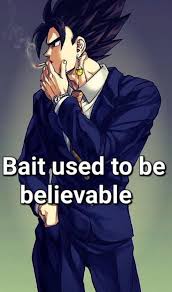The spirit is pointing out that they already are functionally similar. If the only difference is one layer of separation in method of obtainment, then they are already close enough that removing that wouldn’t make the game worse
No it’d still be the same fallacy, but your answer that I linked below would be a logical answer to the question
I guess it’s the effect difference part that make it a no true scotsman fallacy.
Guys I don’t think it’s worth arguing with this guy anymore, at this point I’m pretty sure this is just a super elaborate ragebait
It would cause it’d just create two identical separate features with different names, it’d be the same as if you could have two enchants on one item, but the enchants are separated into two groups.
I’ll say it again, I’m just arguing against OP’s suggestion. If the issue needing to be solved is modifiers being too grindy then increasing the drop rates (of charts or modified items) is the best solution to that problem
No it wouldn’t, the method of obtainment would still be different, you get the essences from charts, as opposed to sealed chests. This suggestion removes the rng involved, which is an incredible qol change for anyone who doesn’t want to grind charts indefinitely.
Well after reading what’s the “no true scotsman fallacy” actually is.
I’ll argue that this is NOT “no true scotsman fallacy”, because one of the conditions requires the asker to modify the question after the answer is given to specifically disqualify that answer.
However, there is no modification of the question, because you’re just giving out wrong answer to the question. Well, that doesn’t mean the question would always have an answer though.
Opinion =/= fact.
We are backed by like half the active forumers,
You are backed by your own opinion.
We are not on equal footing here
I mean now it just seems like you’re forgetting what I explained earlier, there’s no answer to the question because he asked me exclude the difference I pointed out between the two mechanics ![]() that’s a no true scotsman fallacy
that’s a no true scotsman fallacy
Yeah ok sure buddy

Idk why you keep saying I’m baiting, I spend a minimum of 3-4 hours per day trying to improve and balance the game, trolling/baiting on the forums wouldn’t be beneficial to that cause
WAIT YOU ARE ON THE BALANCE TEAM!?
disregard this dudes opinion guys, balanceteam member detected
Well I’m pretty sure there are no evidence that he have specifically excluded the answer after you have given it.
It seems like you were straight up not answering his question because you pre-emptively believe that the answer would be excluded when it was given. Thus it is not “no true scotsman fallacy”.
Well if you can prove it to me that he have specifically excluded the answer AFTER you given it, then you’re right in that regards.
Let’s say two people are arguing about the difference between two concepts. Person A believes that there are differences, person B believes that there aren’t any differences.
Eventually, Person A points out a difference and that difference is the only dissimilarity between the two concepts. Person B then says, okay point out a difference except for that one. What logical fallacy has person B commited?
Person B is committing the No True Scotsman fallacy. This fallacy occurs when someone arbitrarily changes the criteria for a concept or claim to dismiss counterexamples or contrary evidence. In this case, Person B has acknowledged that there is a difference but then shifts the goalposts by asking Person A to point out a difference “except for that one,” essentially dismissing the valid difference to maintain their original position.
This fallacy allows Person B to avoid dealing with the evidence that challenges their view by redefining what counts as valid evidence.
thought so, bad faith
True, but here’s the thing.
Similarity is subjective, I consider them to already be similar because of how they function. You consider them to be dissimilar because of their obtainment method. I cant be committing the no true Scotsman fallacy when we both had different criteria to begin with.
can we just delete modifiers atp dawg
Ah sorry I forgot.
Disregard this dudes opinion guys, balanceteam member detected.
SLASH JAY
Fartman with another goated take
Yeah I know what “No true Scotsman” is, don’t worry about that.
There is just one thing that doesn’t make this a “No true scotsman” fallacy though.
It’s not that you were giving out the correct answer, which is then excluded after the fact. You were giving incorrect answer because the question specifically asks for other answers (which none exists according to the original question).
It is still a question with no answer, but this is not “No true scotsman” fallacy.
There is a difference between an unanswerable question, and an answerable question which then becomes unanswerable when an answer is given.
Also, you’re still not giving me proof of the asker committing the fallacy, you’re just explaining what the fallacy is.